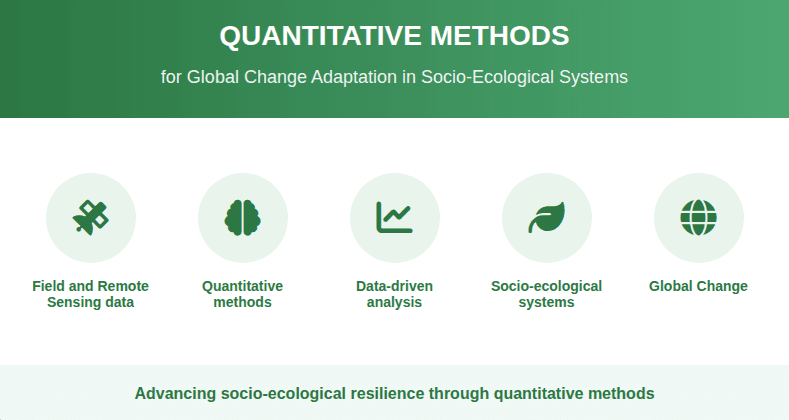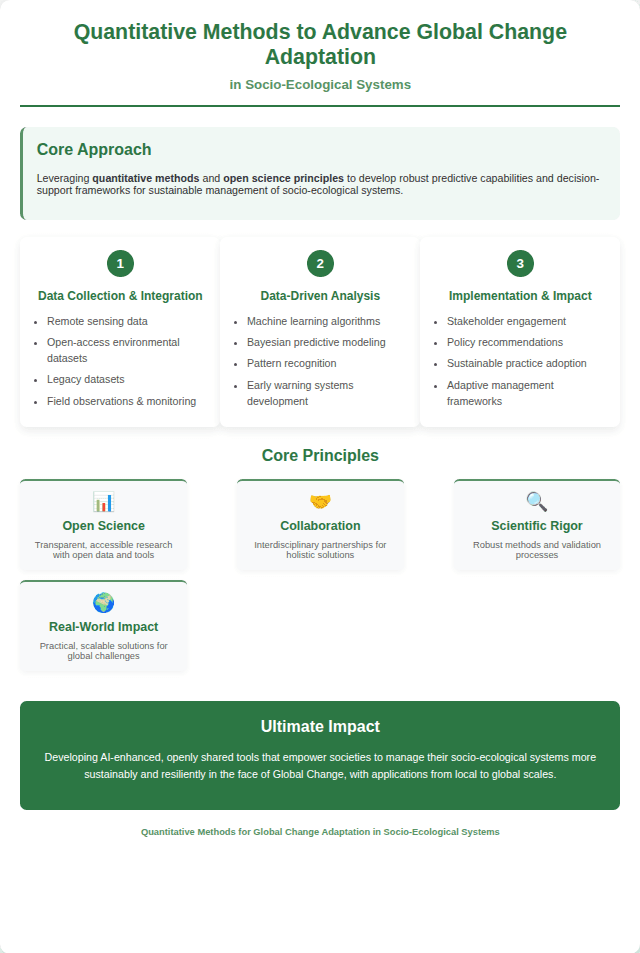
Quantitative methods to advance Global Change adaptation in socio-ecological systems
This research program is designed to address the critical challenges of global change, specifically the degradation of nature and the unsustainable management of socio-ecological systems, through advanced, transparent, and actionable quantitative science.
Core Approach:
The research line is built on a foundation of quantitative ecology, scientific programming, and a firm commitment to open-science principles. It leverages Artificial Intelligence (AI) and mechanistic modeling to develop robust predictive capabilities and decision-support frameworks. A key differentiator is the emphasis on integrating open-access data and open-source computational tools to ensure full transparency, reproducibility, and accessibility of all research outcomes.
Primary Research Objectives:
- AI-Driven Monitoring and Prediction: To create and validate AI-powered monitoring systems capable of detecting, predicting, and mitigating ecological disruptions. An application is the development of early-warning systems for pest outbreaks in intensive agriculture, aiming to reduce reliance on chemical pesticides and enhance ecosystem resilience significantly.
- Integration of Multi-Source Data: To enhance predictive accuracy by fusing diverse data streams, including remote sensing imagery, open-access environmental datasets, and advanced ecological models. This integration will produce dynamic, real-time assessments of environmental health for land managers and policymakers.
- Co-Development of Implementable Solutions: To ensure scientific rigor is matched by practical utility, the research will incorporate participatory approaches, actively engaging local stakeholders and partners. This ensures the technological solutions are aligned with socio-economic realities and are readily adoptable.
We seek to transform the field of global change adaptation by providing scientifically rigorous, AI-enhanced, and openly shared tools that empower societies to manage their socio-ecological systems more sustainably and resiliently.
Image Gallery
